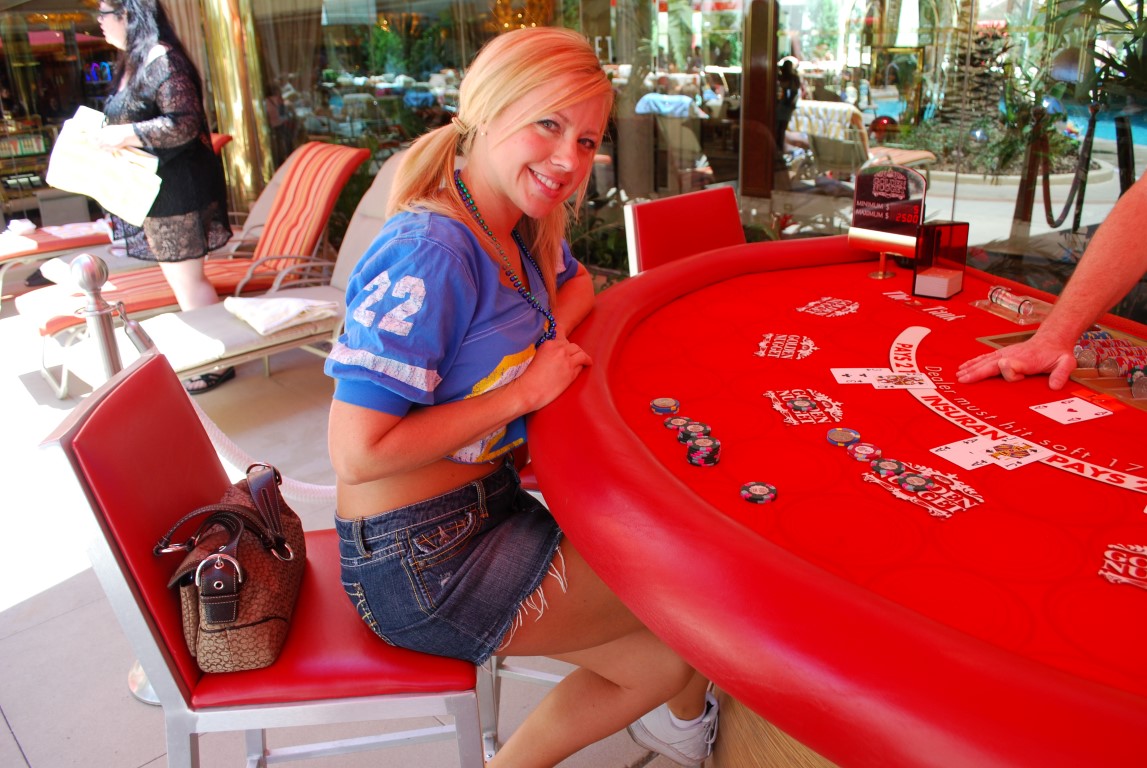On this page
The Ace/Five Count
Introduction
Basic strategy blackjack players sometimes ask me for a simple way to overcome the small house edge in blackjack, with little worry over being recognized as a card counter. This is often done with the motive of milking the casinos for comps and offers. What follows is, in my opinion, the easiest card counting strategy to achieve the above goal and still put the odds in the player's favor.
How It Works
- Establish what your minimum and maximum bets will be. Usually the maximum will be 8, 16, or 32 times the minimum bet, or any power of 2, but you can use whatever bet spread you wish.
- At the beginning of each shoe, start with your minimum bet, and a count of zero.
- For each five observed, add one to the count.
- For each ace observed, subtract one from the count.
- If the count is greater than or equal to two, then double your last bet, up to your maximum bet.
- If the count is less than or equal to one, then make the minimum bet.
- Use basic strategy for all playing decisions.
This strategy was designed to be most effective on a six- or eight-deck game. I recommend playing only on games with liberal Strip rules, which are as follows:
- 4-8 decks
- Blackjack pays 3 to 2
- Dealer stands on soft 17
- Double after split allowed
- Late surrender allowed
- Re-splitting aces allowed
- 75%+ penetration
Such games are easy to find in Las Vegas, although sometimes a higher minimum bet is required. In the low-roller pits, the dealer will usually hit on a soft 17, which is bad, costing the player 0.22%.
Simulation Results
The following results were provided by Norm Wattenberger using his Casino Vérité software. The rules above were used, with six decks, and 75% penetration. In my opinion, Casino Vérité is the most robust and accurate blackjack simulation software on the market. It can be used to test just about any card counting strategy under any set of rules and conditions.
Ace/Five Count Statistics
| Spread | Player Advantage | Average Initial Bet | SCORE |
|---|---|---|---|
| 1-8 | 0.30% | 2.7 | 3.1 |
| 1-16 | 0.45% | 4.2 | 5.3 |
| 1-32 | 0.57% | 7.1 | 6.5 |
SCORE is an acronym, coined by Don Schlesinger, for Standardized Comparison Of Risk and Expectation. It is defined as the advantage squared divided by the variance. The SCORE may also be interpreted as the expected hourly win per hand for a player with a $10,000 bankroll, who sizes his bets according to the Kelly Criterion, to achieve a 13.5% risk of ruin. As a basis of comparison, a Hi-Lo counter, with a 1 to 8 spread, under the same rules, has a SCORE of 8.40, compared to the 3.1 of the Ace/Five count.
Source: 'Blackjack Attack,' third edition by Don Schlesinger.
Earlier Strategies
After publishing this section, somebody accused me of stealing the idea from Edward Thorp. Indeed, in 1969 Thorp did discuss a similar strategy in his book 'Beat the Dealer,' in the fourth chapter titled "A Winning Strategy." The difference is that Thorp's strategy tracks fives remaining against total cards remaining. Later, in 1971, Lawrence Revere published a similar strategy as Thorp's in 'Playing Blackjack as a Business,' chapter 7 titled "The Revere Five Count Strategy."
Practice
Practice your card counting skills with our trainer.
Acknowledgments
- Norm Wattenberger: For the simulation results, using his Casino Vérité software.
- Don Schlesinger: For his many edits to this page.




